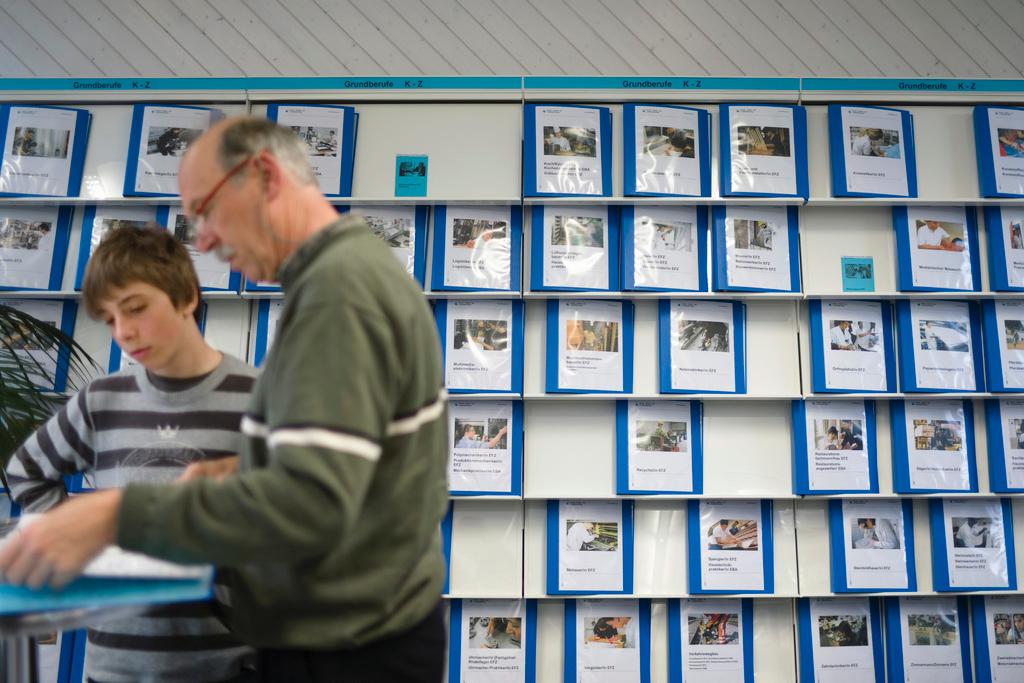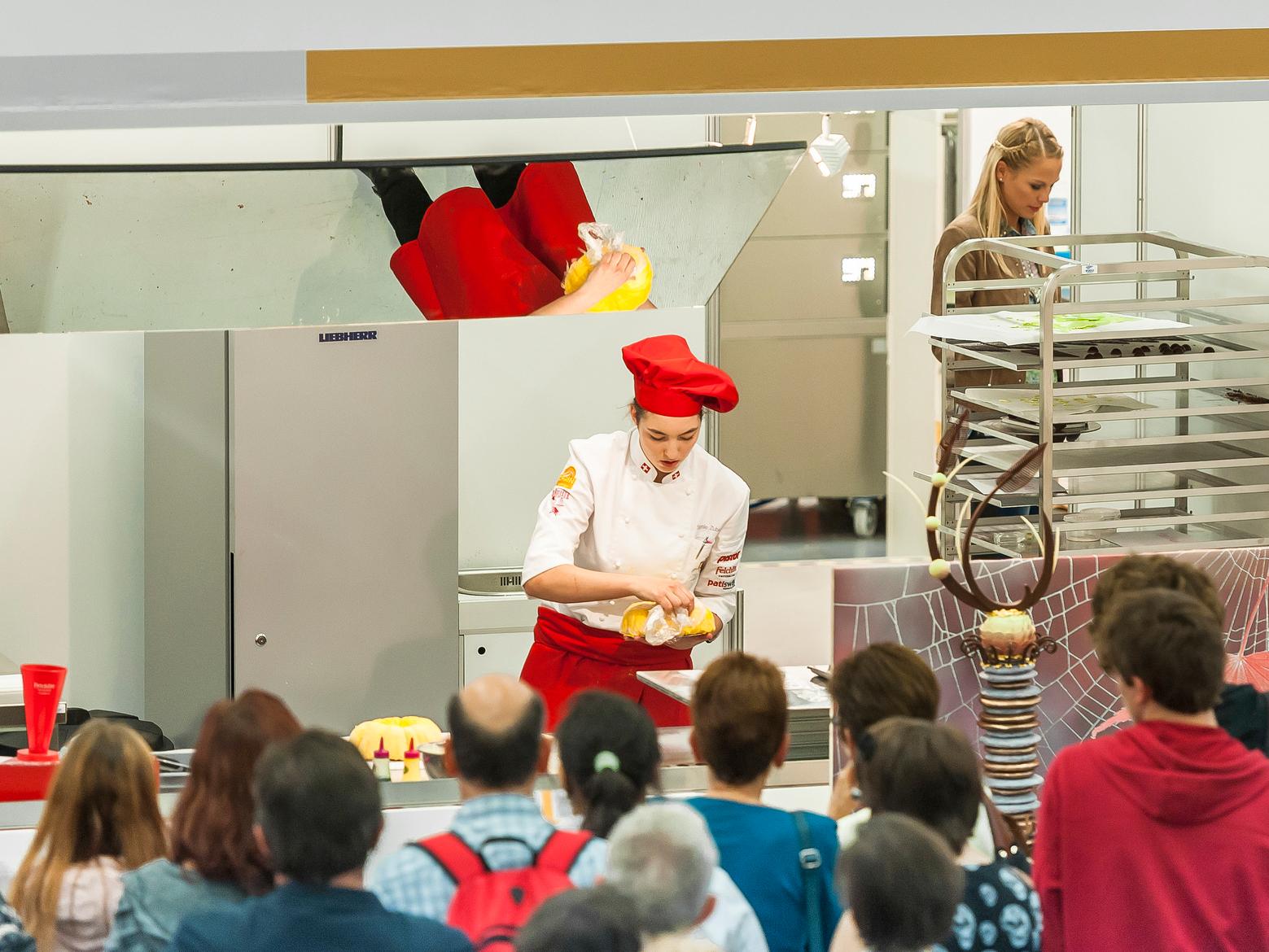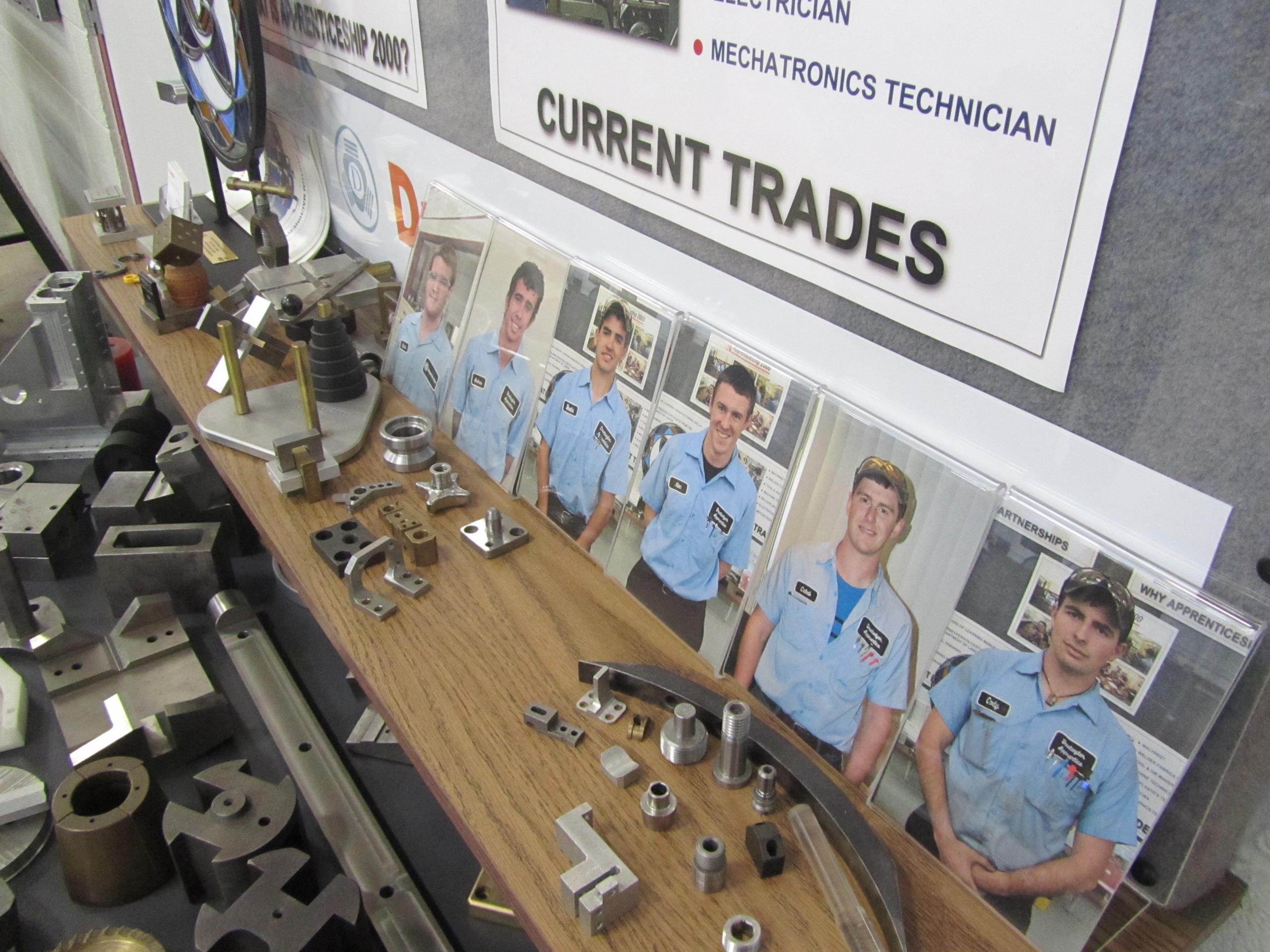Film tracks teens as career decision looms

The months fly by and time grows short for a group of Swiss teens in their final year of school who have to find an apprenticeship or face a dead-end future. A new film tracks their tension-ridden journey into the world of work.
“After the Winter” tells the story of four young people enrolled in a special tenth year of schooling in a last-ditch effort to find an apprenticeship. Even as they struggle to figure out how and where to apply, face rejection and wonder whether they are ready to become adults, their teacher reminds them every day that it’s crunch time. If they don’t find something before the end of the year, they’ll be left behind.
A screening of After the Winter at the Zurich Film Festival – where the film recently premiered – was attended by hundreds of schoolchildren about to consider their future careers. Following the show, filmmakers Adrien Bordone and Bastien Bösiger sat down with swissinfo.ch to discuss their work and what it taught them about the Swiss education system.
swissinfo.ch: What made you want to make this film?
Bastien Bösiger: We knew we wanted to make a film together. Later, I was driving and listening to a radio show that was talking about young people in Geneva who were more or less in the same situation as the people in the film. I was fascinated by what they were saying about the adult world of work.
Adrien Bordone: The first goal was to make a film together about Biel [where we are from]. In the film you see a lot of landscape, and hear this accent from Biel which is very special and exotic for the rest of the Swiss people. And then what made us want to make this film was to meet these young people. They were really in the kid world but already a bit adult. This passage [between those stages of life] was really interesting. What makes a kid, at 15, want to work – or not?
swissinfo.ch: What did you learn about Switzerland’s education system in the process of making this film? Did anything surprise you?
B.B.: I had a lot of clichés before doing this film, about this special school for students who don’t have [an apprenticeship or other plans] yet. I thought it was more for the “dumb” people. But when I went there, I realized that they are people like me. So it erased my cliché about this special kind of school.
A.B.: Bastien and I both went to school and then the ‘gymnase’ [to get the baccalaureate], and then university. The whole process of choosing what to do took ten years. And they have only one year to make that decision. At that age we weren’t at all faced with choosing, we were just studying our math or French lessons. And these people have to choose in one year. We had no idea how it worked, we weren’t on the same path, hadn’t lived the same way. We had ten years, they had one, and that was interesting for us.
swissinfo.ch: Do you think the dual track career system in Switzerland works well for all students, even though you profiled those who may have been left behind a bit?
A.B.: When we discovered this class, maybe we were a bit critical, that they pressure the young students to find work, it’s not normal. But we realised that it works quite well because 90% of the people in this tenth year school found a job, found an apprenticeship. They learned to write a CV, telephone people, go into the world of adults. So I think it’s quite a good system to integrate those people. Doing an apprenticeship is very important, it’s not a bad way to go. Some very influential people have done apprenticeships. It’s maybe a bit more rough to go directly to working, but then you can do a lot of things and it’s really a good path.
swissinfo.ch: Could you identify with any of the characters?
B.B.: I think that at every age in life we hesitate about what to do. That’s why I could identify with all of these people, trying to figure out what they want to do.
A.B.: Maybe it’s a bit strange, but now, at 27, I’m beginning to ask myself the same questions that they are asking themselves at 16. Because I was at the university, I studied a lot, it really took me a lot of time. And now that I’m done with my Masters in philosophy, I have to ask myself, how do I make money and live my life? I realise how lucky I am to have had this time. [The students in the film] don’t have any choice, they have to choose work, they have to find something, and I had ten years to ask myself this question. Maybe it’s not normal that some people have to choose this at the age of 16 and others have ten more years to take time, to study, and so on.
swissinfo.ch: What story lines came out in the making of the film that surprised you or made you think differently about these young people?
A.B.: A big question for me that I wanted to look at is the question of the future. It’s a bit depressing sometimes, with this issue of wars, things not going well in our world, there are a lot of problems. So how is it possible, at 16, to be happy and say yes, I want to work, I want to go into this world and grow? This question came across with all of the students but maybe [the character] Hugo showed it a bit more than the others because he explicitly said that he is afraid of the future, that we don’t know what’s going to happen, that we don’t know if the Swiss will still be so rich or if it’s possible to find a good way in the world. Can we believe in the future? I think we can, but I feel the same fears that Hugo does.
swissinfo.ch: The school classes visiting the cinema during the screening cheered and commented every time one of the students in the film found an apprenticeship. Did you expect such a strong reaction?
B.B.: Before the screening I was a little bit afraid [of how attentive they would be]. But afterwards I saw that the young people were captivated by the movie and for me it was amazing because it was in French, even though only German-speaking children came to see it today.
A.B.: We’ve realised that a lot of young people and teachers appreciate the film a lot because it really shows the reality of looking for a job. Maybe some of the young people who were in the cinema today aren’t sure what to do and maybe it shows them how it’s going to work and what can make it go well. Maybe they’ll think, I’m not alone, I’m not the only one who is afraid of not finding a job.

In compliance with the JTI standards
More: SWI swissinfo.ch certified by the Journalism Trust Initiative












You can find an overview of ongoing debates with our journalists here . Please join us!
If you want to start a conversation about a topic raised in this article or want to report factual errors, email us at english@swissinfo.ch.